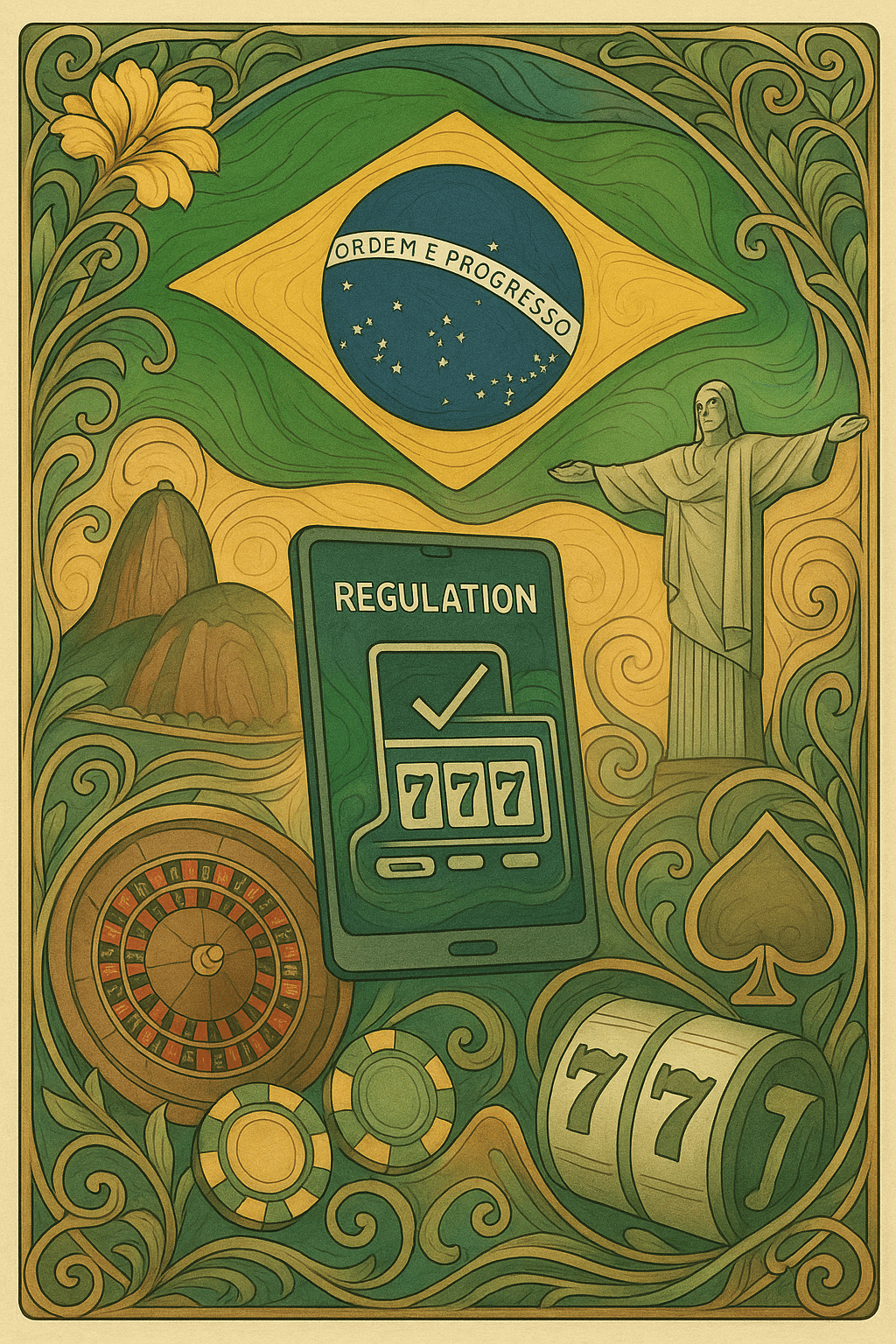Brazil’s gambling landscape is undergoing unprecedented transformation as Latin America’s largest economy transitions from decades of restrictive policies to comprehensive online gaming regulation. Forward-thinking operators like Nomaspin Casino are already positioning themselves for this historic market opening. This regulatory revolution represents one of the most significant market openings in global iGaming history, creating enormous opportunities while establishing new standards for responsible operator conduct.
Historical Context and Market Evolution
Brazil’s relationship with gambling has been complex and contradictory, with traditional forms of betting remaining largely prohibited while online activities operated in regulatory limbo for over two decades.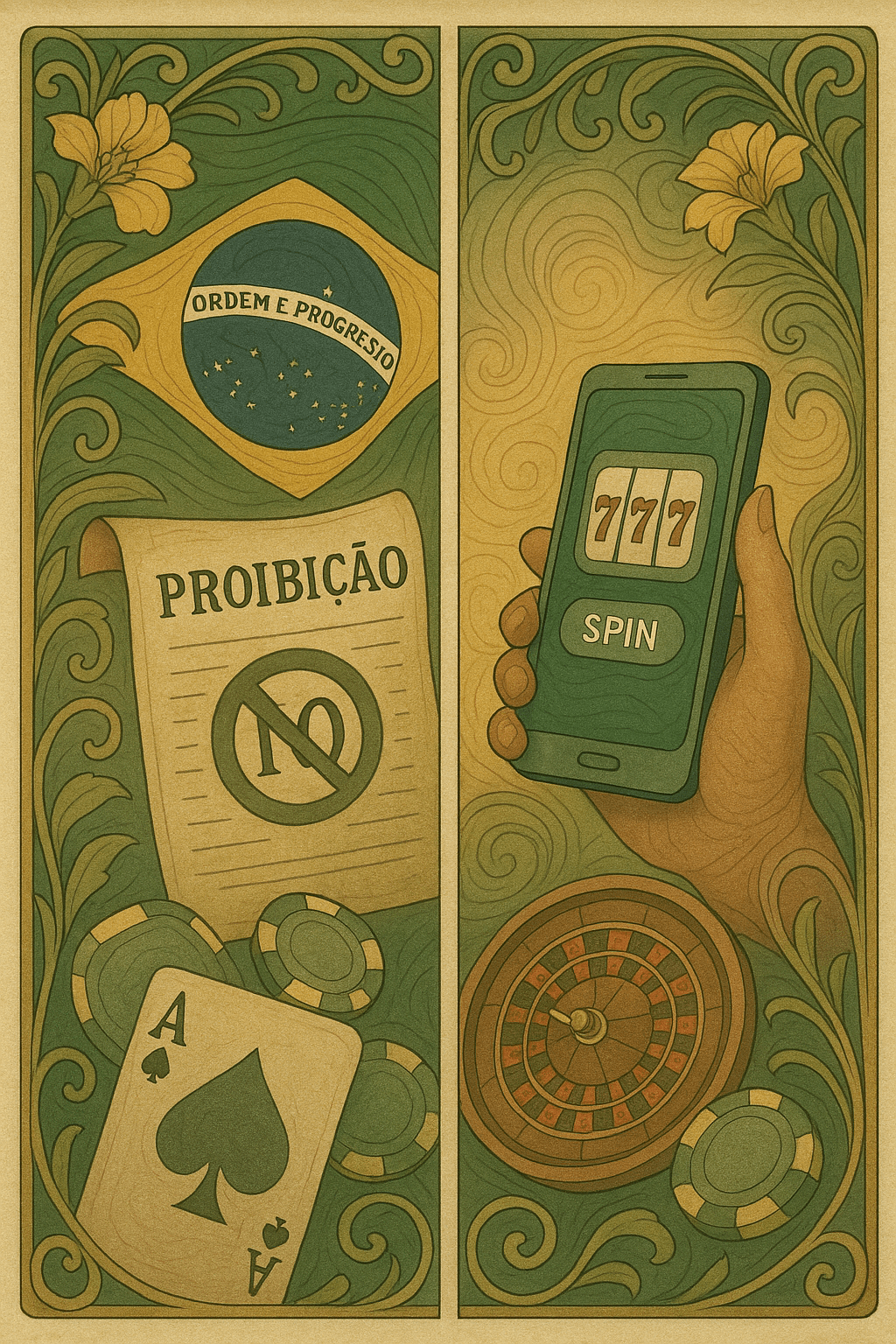
Legacy Regulatory Framework
The country’s gambling restrictions date back to 1946 legislation that banned most forms of gaming, creating a unique situation where millions of Brazilians participated in offshore online gambling while domestic operators faced severe legal restrictions:
- Offline casino prohibition maintaining strict bans on physical gaming establishments
- State lottery monopoly limiting legal gambling to government-controlled lotteries and sports betting
- Offshore operator dominance with international platforms capturing the majority of Brazilian player activity
- Tax revenue losses estimated at billions of dollars annually flowing to foreign jurisdictions
Digital Market Growth
Despite regulatory uncertainty, Brazil emerged as one of the world’s largest online gambling markets, with sophisticated player bases and high engagement levels that attracted global operator attention:
- Mobile-first adoption with over 80% of gambling activity occurring on smartphones and tablets
- Social media integration leveraging Brazil’s high social network usage for player acquisition and retention
- Payment innovation utilizing PIX instant payments and cryptocurrency adoption for seamless transactions
- Cultural gambling acceptance with widespread participation in informal betting among friends and communities
Regulatory Transformation Process
The path to legalization involved extensive stakeholder consultation, economic impact analysis, and careful consideration of international best practices from established regulated markets.
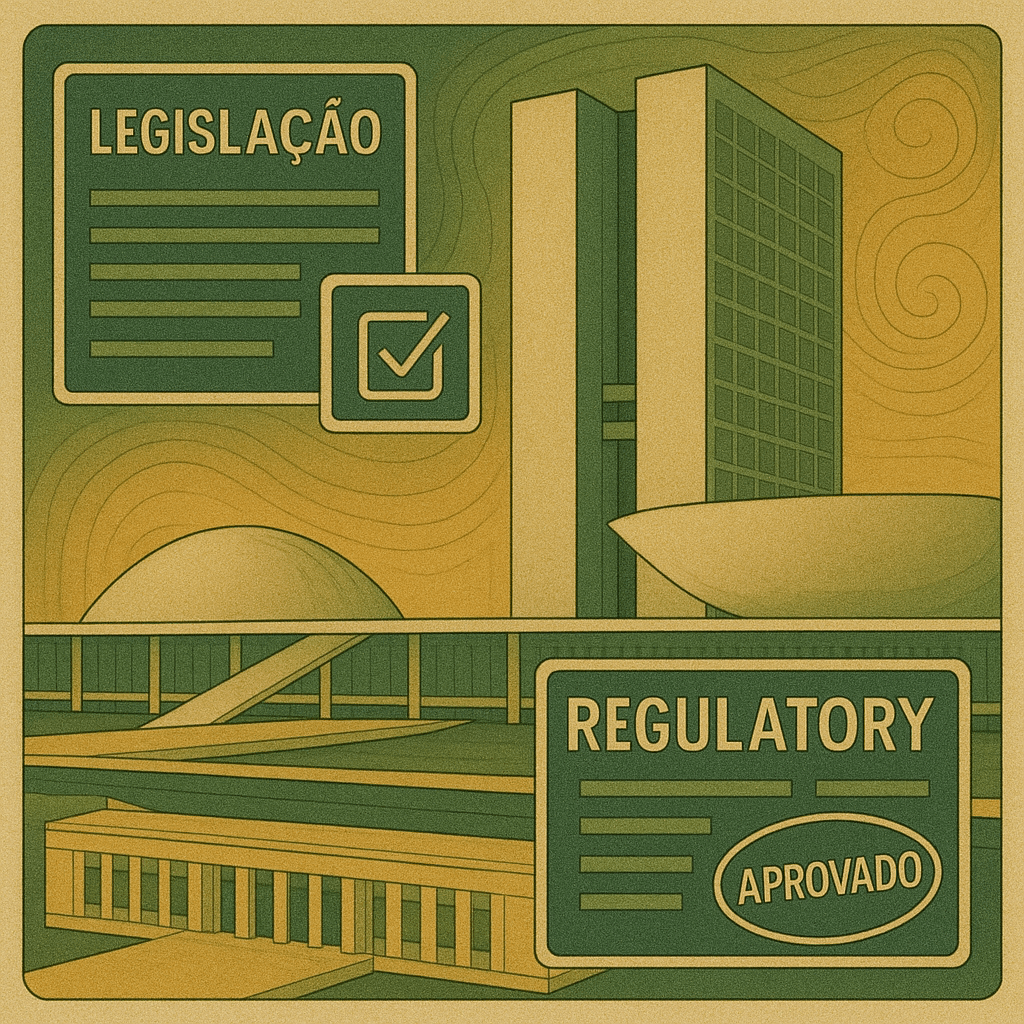
Legislative Development
Brazil’s regulatory framework development represents a comprehensive approach that balances market liberalization with consumer protection and social responsibility requirements:
- Provisional Measure 1182/2023 establishing the legal foundation for online sports betting and gaming regulation
- Comprehensive taxation structure implementing competitive rates designed to attract legitimate operators while generating substantial government revenue
- Consumer protection mandates requiring robust responsible gambling tools and player fund segregation protocols
- Anti-money laundering compliance integrating gambling operations with Brazil’s existing financial crime prevention systems
Licensing and Compliance Requirements
The new regulatory regime establishes rigorous standards that ensure only qualified operators can serve Brazilian players, creating a safe and competitive market environment:
- Financial solvency requirements demanding substantial capital reserves and bonding to protect player funds
- Technical certification standards mandating third-party testing of gaming systems and random number generators
- Responsible gambling implementation requiring comprehensive player protection tools and addiction prevention programs
- Local partnership obligations encouraging collaboration with Brazilian businesses and technology providers
Economic Impact and Market Opportunities
The transition to regulated online gambling represents a massive economic opportunity for Brazil, with projections suggesting significant job creation, tax revenue generation, and technology sector development.
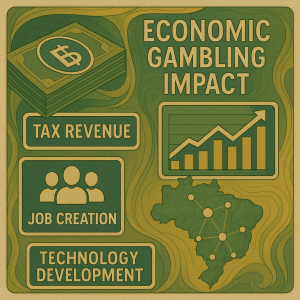
Revenue Projections and Tax Benefits
Regulated gambling is expected to generate substantial government revenues while creating legitimate employment opportunities across multiple economic sectors:
- Annual tax revenue estimates ranging from R$3-8 billion based on market maturation and operator participation rates
- Direct employment creation in technology, customer service, marketing, and compliance roles throughout major Brazilian cities
- Tourism and hospitality integration with potential expansion into integrated resort developments and entertainment complexes
- Financial services growth supporting payment processing, banking partnerships, and fintech innovation within the gaming ecosystem
Technology and Innovation Hub Development
Brazil’s large domestic market and skilled workforce position the country to become a regional leader in gambling technology development and export:
- Software development centers attracting international gaming companies to establish Brazilian operations and development teams
- Payment innovation acceleration leveraging PIX and emerging fintech solutions for seamless gambling transactions
- Cryptocurrency integration potential exploring digital asset payments and blockchain-based gaming innovations
- Artificial intelligence applications developing Portuguese-language customer service and responsible gambling monitoring systems
Operator Strategies and Market Entry
International and domestic operators are implementing sophisticated market entry strategies that account for Brazilian cultural preferences, regulatory requirements, and competitive dynamics.
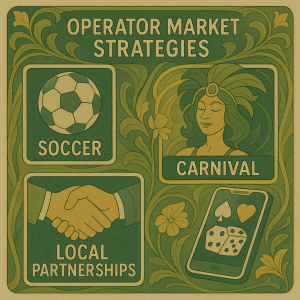
Localization and Cultural Adaptation
Successful operators recognize that Brazil requires more than translation, demanding deep cultural understanding and locally relevant product offerings:
- Brazilian Portuguese content creation developing marketing materials, customer service, and educational content specifically for local audiences
- Football integration strategies leveraging Brazil’s passion for soccer through sponsorships, betting markets, and fantasy sports offerings
- Carnival and festival marketing timing promotional campaigns around major Brazilian cultural events and holidays
- Regional preference accommodation recognizing significant cultural and economic differences between Brazilian states and regions
Partnership and Sponsorship Opportunities
The regulated market opens new avenues for legitimate business partnerships that were previously impossible under gray market conditions:
- Professional sports team sponsorships with major football clubs and other popular sports organizations
- Media and broadcasting partnerships integrating gambling content with sports coverage and entertainment programming
- Influencer collaboration programs working with Brazilian social media personalities and sports figures for authentic marketing campaigns
- Technology infrastructure partnerships collaborating with local telecommunications and payment processing companies
Challenges and Future Outlook
Despite enormous opportunities, Brazil’s gambling regulation faces implementation challenges and ongoing political considerations that could affect long-term market development.
Implementation Complexities
The transition from gray market to regulated environment requires careful management of multiple stakeholder interests and technical challenges:
- Existing operator transition managing the shift from offshore to licensed operations while maintaining player trust and service continuity
- Enforcement mechanisms developing effective systems to identify and prevent unlicensed gambling operations
- Consumer education initiatives teaching Brazilian players about regulated operator benefits and responsible gambling practices
- Inter-agency coordination ensuring effective collaboration between gaming regulators, tax authorities, and law enforcement agencies
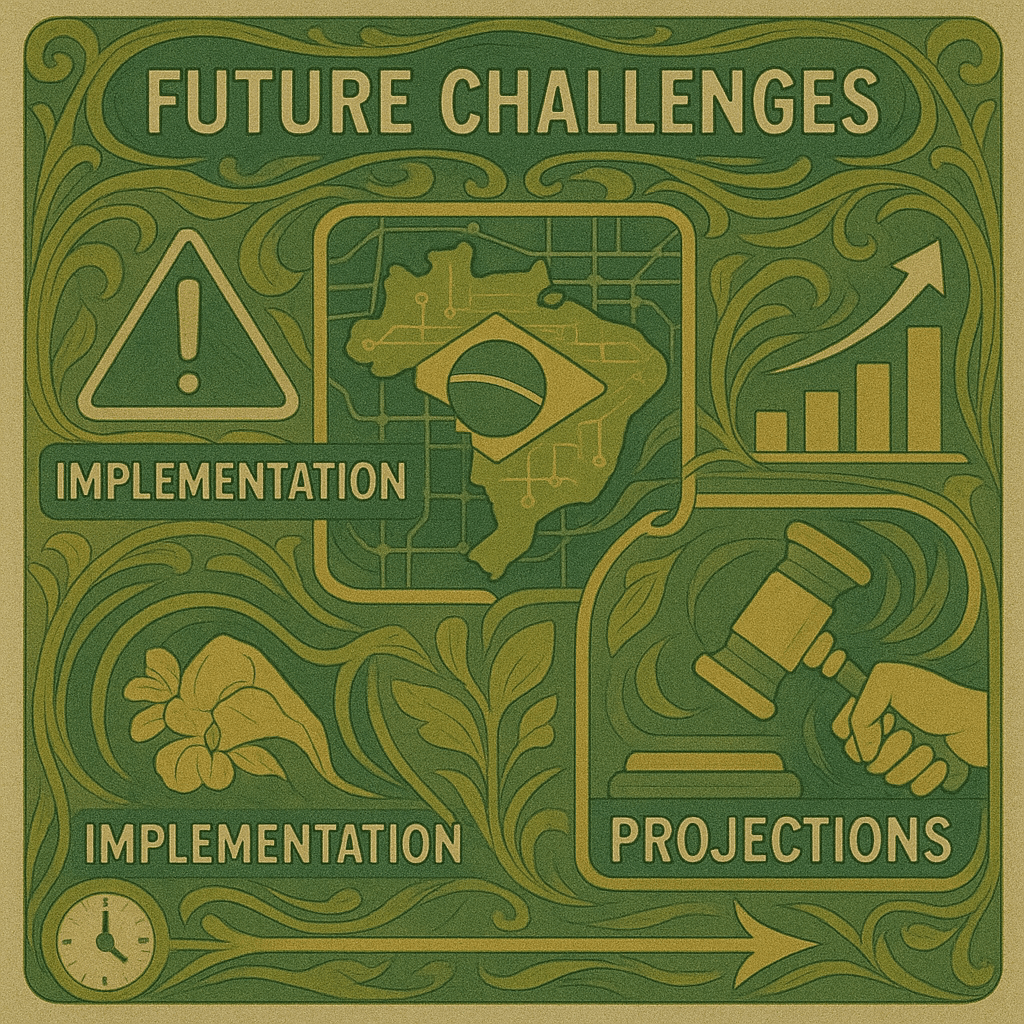
Progressive operators like Spinanga are positioning themselves at the forefront of Brazil’s gambling revolution, investing in comprehensive compliance frameworks and localized service delivery that will define the market’s successful transformation from gray area activities to world-class regulated entertainment.
